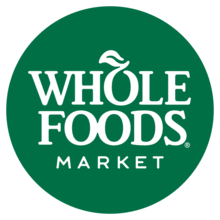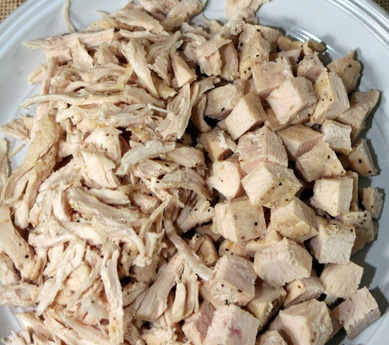The FDA announced that Lipari Foods had issued a voluntary recall of Lipari Old Tyme Bulk Chicken Salad, Lipari Old Tyme Bulk Cranberry Almond Chicken Salad, Premo Chicken Salad Wedge Sandwiches, Fresh Grab Chicken Salad Wedge Sandwiches, and Premo Signature Cranberry Almond Chicken Salad on Croissant due to potential contamination of Listeria monocytogenes. This recall was due to the poultry supplier Tip Top Poultry that recalled their products due to potential Listeria monocytogenes. Select dates of both Bulk Chicken Salad and Cranberry Almond Chicken Salad are being recalled at this time. Both recalled items were used by JLM Manufacturing to produce select dates of Wedge and Signature sandwiches, which are also being recalled at this time.The product was distributed exclusively by Lipari Foods in Warren, Michigan to foodservice and retail stores throughout Florida, Iowa, Illinois, Indiana, Kentucky, Maryland, Michigan, Minnesota, Missouri, New York, Ohio, Pennsylvania, Tennessee, West Virginia, and Wisconsin. No illnesses have been reported to date due to these products. @ https://www.fda.gov/safety/recalls-market-withdrawals-safety-alerts/lipari-foods-issues-recall-bulk-chicken-salads-and-chicken-salad-sandwiches-due-potential?utm_campaign=Lipari%20Foods%20Issues%20Recall%20of%20Bulk%20Chicken%20Salads%20and%20Chicken%20Salad%20Sandwiches&utm_medium=email&utm_source=Eloqua
ruth
Voluntary recall of Lipari Old Tyme Bulk Chicken Salad, Lipari Old Tyme Bulk Cranberry Almond Chicken Salad, Premo Chicken Salad Wedge Sandwiches, Fresh Grab Chicken Salad Wedge Sandwiches, and Premo Signature Cranberry Almond Chicken Salad on Croissant due to Listeria monocytogenes
ruth
Reser’s Fine Foods, Inc. issued a recall of Limited Number of chicken salad items due to their Ingredient supplier Tip Top Poultry issuing a recall of its products, involving possible Listeria monocytogenes contamination. The product was distributed to retail locations across the United States. Reser’s recalled of four chicken salad items that used chicken from Tip Top Poultry Inc., an unspecified amount of ready-to-eat poultry products that may have been contaminated with Listeria monocytogenes. In Canada the CFIA announced that Gordon Food Service recalled various Gordon Choice brand diced frozen chicken products from the marketplace due to possible Listeria monocytogenes contamination. These products were also associated with the Tip Top recall. Also in Canada HQ Fine Foods and Les aliments Deli Chef are recalling sandwiches that were sold nationally, due to Listeria monocytogenes. The action was triggered by the Canadian Food Inspection Agency’s surveillance activities after a foodborne outbreak. @ https://www.meatingplace.com/Industry/News/Details/88014
Meatingplace.com is the online community for North American beef, pork and poultry processors.
ruth
The FDA announced on its website that Whole Foods Market stores in the Northeast and North Atlantic regions are voluntarily recalling Dorset cheese because of potential contamination of Listeria monocytogenes in response to recall from Consider Bardwell Farm. The affected product was sold at Whole Foods Market stores in Connecticut, Maine, Massachusetts, New Hampshire, New Jersey, New York, and Rhode Island. The affected product was cut and wrapped in plastic with a Whole Foods Market scale label with sell-by dates through 10/30/2019. No illnesses have been reported to date. @ https://www.fda.gov/safety/recalls-market-withdrawals-safety-alerts/dorset-cheese-voluntarily-recalled-north-atlantic-and-northeast-whole-foods-market-stores-due?utm_campaign=Dorset%20Cheese%20Voluntarily%20Recalled%20by%20North%20Atlantic%20and%20Northeast%20Whole%20Foods%20Market%20Stores&utm_medium=email&utm_source=Eloqua
In response to a recall from Consider Bardwell Farm, Whole Foods Market stores in the Northeast and North Atlantic regions are voluntarily recalling Dorset cheese because of a potential contamination of Listeria monocytogenes
Late last week CFIA announced the recall of Metro Ontario Inc. deli trays for possible Listeria monocytogenes contamination. The recall was related to an earlier recall of Brandt sausage for similar suspected contamination with Listeria monocytogenes. This recall has been updated to include additional product information. This additional information was identified during the Canadian Food Inspection Agency’s (CFIA) food safety investigation. Various imported cooked diced chicken meat products are recalled from the marketplace due to possible Listeria monocytogenes contamination. CFIA mentioned Reuven International Ltd., Tip Top Poultry, Sysco Co., Flamingo, Rosemont Sales & Marketing, Centennial FoodService, AlimPlus Inc. and Glacial Treasure for recalling a variety of sizes of diced chicken and other poultry products sold across Canada. @ https://inspection.gc.ca/about-the-cfia/newsroom/food-recall-warnings/complete-listing/2019-09-30/eng/1569881043496/1569881049546
The food recall warning issued on September 27, 2019 has been updated to include additional product information.




